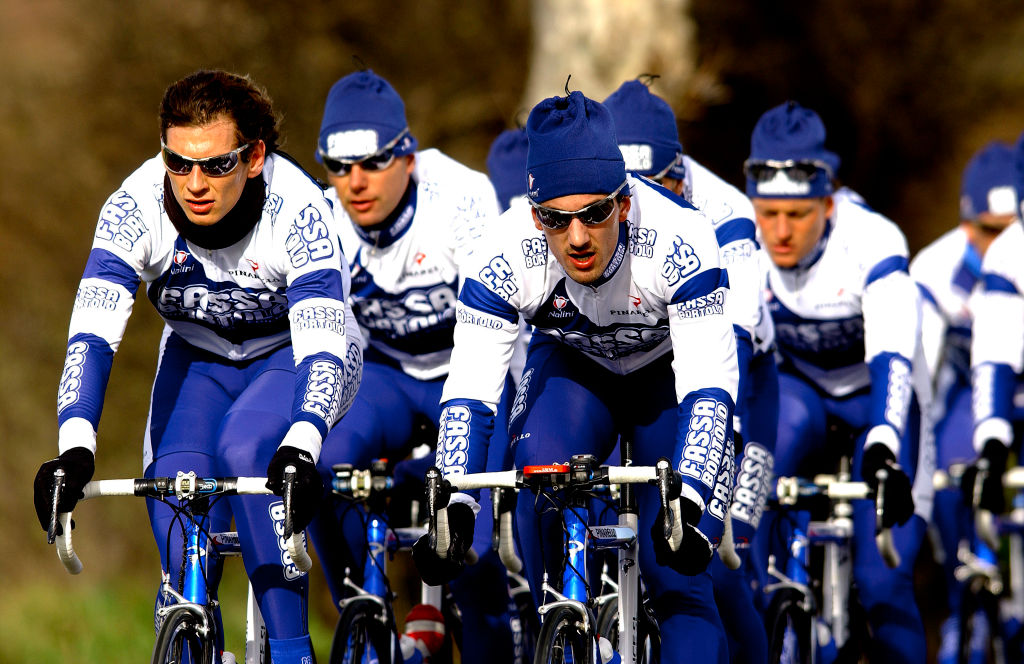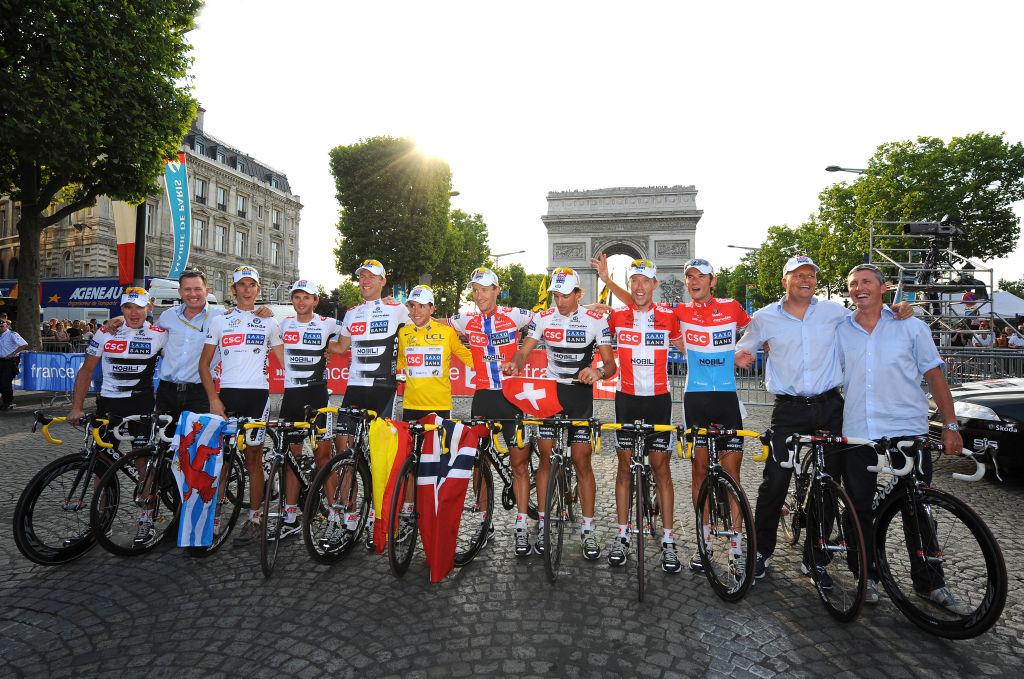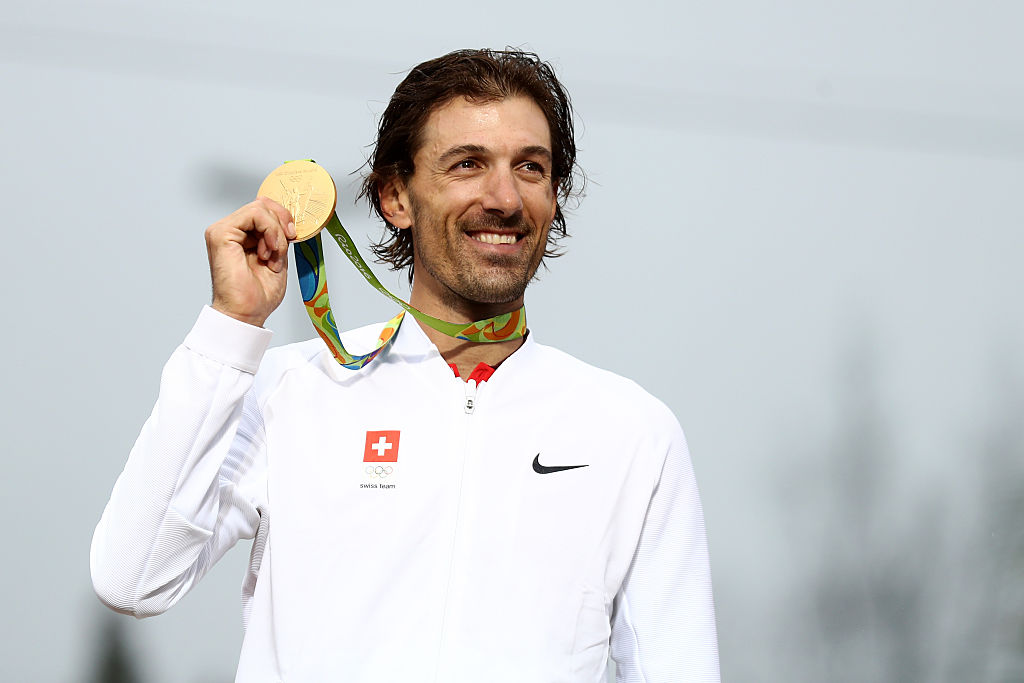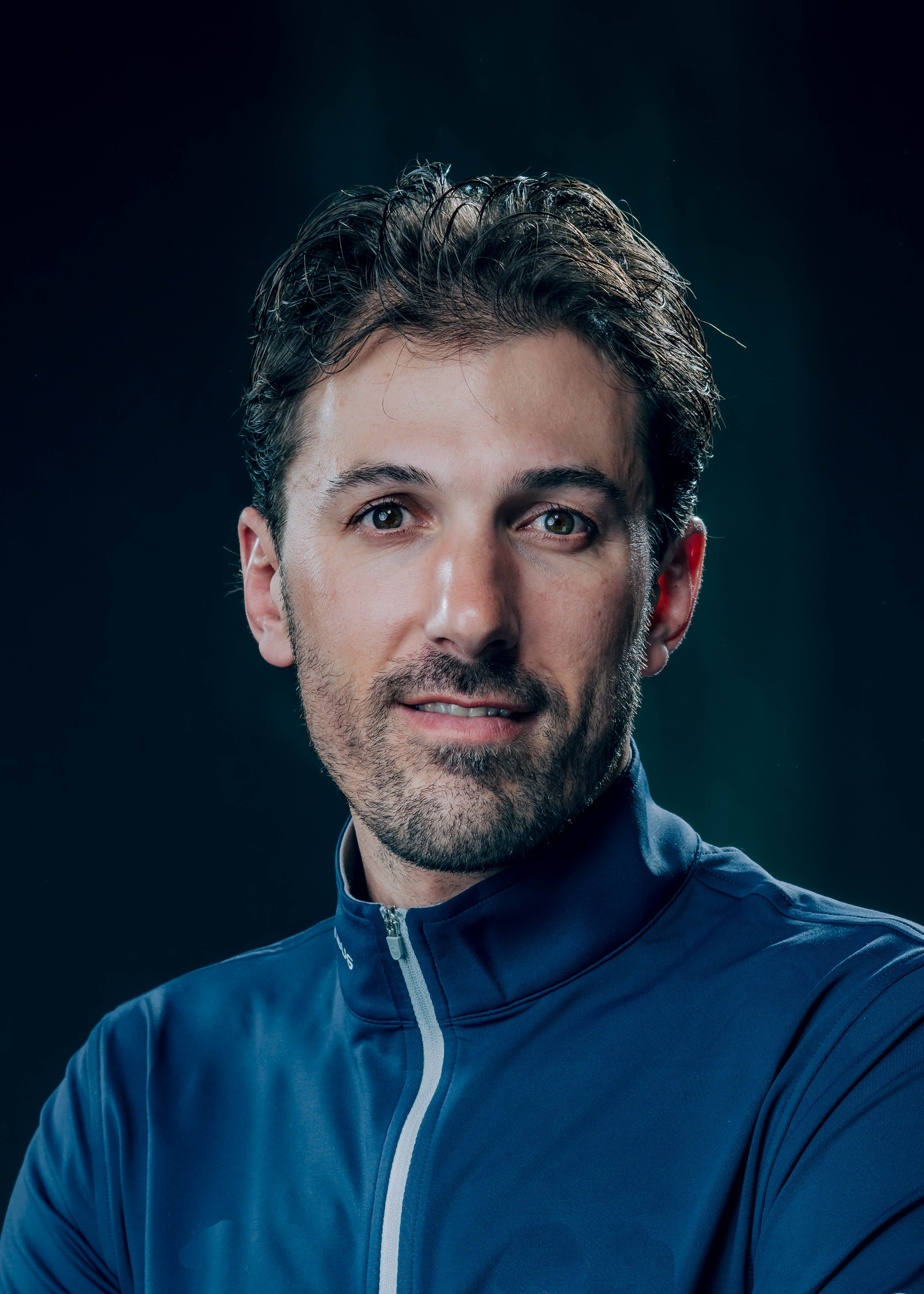From apprentice to master: Fabian Cancellara's career through the years
The two-time Olympic time trial champion recalls his professional journey




He may have been a time-trial specialist – and won the World Championship title four times, the Olympic title twice, and the opening TT stage of the Tour de France five times – but Switzerland's Fabian Cancellara endeared himself to his huge fanbase by being one of the most adaptable riders of his generation.
He won both Paris-Roubaix and the Tour of Flanders three times, as well as Milan-San Remo and the overall titles at the Tour de Suisse and Tirreno-Adriatico. Well-liked by his teammates at the likes of Mapei, CSC and Trek, since retiring following the 2016 Olympics, Cancellara can look back on a career full of highlights.
Mapei-QuickStep, 2000-2002
In a nutshell: The apprentice
After I won the time trial at the junior world championships for the second consecutive year in 1999, the Mapei team reached out and offered me a contract. Although I was desperate to sign for them, the situation was complicated by the fact that I was working as an apprentice, learning to become an electrician. I was in Bern, Switzerland, working three days a week and studying for two, and the balance between my education and my passion for cycling was tough for a young rider.
The mentality within the Cancellara household was that I needed to finish my studies, complete my mandatory military service, and then I could consider life as a cyclist. But everything changed when Mapei knocked on the door. This was the all-conquering Mapei, with the divine Colnago bikes and their distinctive kit; it was the team of glittering stars, where I knew that I'd be learning from some of the best minds in the sport. Immediately, I realised that this was my one chance. You don't say no to Mapei.
But back home, everyone could see that I was struggling to find the right path in life, as I tried to keep my studies on track, my family happy and my young career hopes alive. My electrician boss could see things clearer than most. He was wise and could recognise my love for school was non-existent, and that I was simply going through the motions. One day, he pulled me aside and agreed to give me an entire afternoon off to 'study', but he and I knew that what 'studying' really meant was riding my bike.
I used those hours to clear my head, battle my thoughts and apprehensions about the future, and, of course, to train like a demon. All my long-distance rides were done during those hours but, eventually, my boss sat me down again and said that I needed to make a choice, and that, once I'd made my decision, I needed to put my heart and soul into it. I gave him my word that I would follow his advice, and from that moment everything in my life was about cycling. It was my passion, my drive, my love, and my life. And then the wins came – one after the other, with perhaps my favourite coming when I put my arms in the air at the GP Palio del Recioto, an important Italian race, in which I beat Franco Pellizotti on his turf.
Get The Leadout Newsletter
The latest race content, interviews, features, reviews and expert buying guides, direct to your inbox!
In August 2000, I went to Mapei as a stagiaire. It wasn't just the star athletes that impressed my family and me. What stood out above all was how the team treated their riders. It all started with the owner, the late Giorgio Squinzi, who had a love for cycling no one could match, and to whom a generation of riders now owe so much. Giorgio's devotion trickled down through the team, from the directors to the riders, the mechanics to the soigneurs. It was magical.
They were the team that gave me my first Polar heart rate monitor, which at the time was a huge moment, and, through them, I learned about training. But more importantly, I learned about their ethos of vincere insieme – 'winning together – and what that meant.
I had some great memories with Mapei, not least in 2002 when they would send all the young riders like me to races and we would win consistently.
Cancellara's top-10 rides
Fassa Bortolo, 2003-2005
In a nutshell: Following the general
When Mapei closed its doors at the end of 2002, I needed a new team, and I ended up signing with Giancarlo Ferretti and his Fassa Bortolo squad. But Mapei and Fassa Bortolo couldn't have been more different. If Mapei had the culture of winning together, then by contrast Fassa Bortolo was simply the team that wanted to win. If Squinzi was the romantic, then Ferretti was the general – a leader charging into battle with his troops behind him, and an iron will when it came to discipline.
For Ferretti, even training camps were treated like races. At one camp, he organised a 100,000 lire prize for a sprint on a particular training route he planned, and before the ride he saw me joking around with a few riders. That was all it took for him to march over and bellow, "Fabian – let's see if you're still laughing and joking after today's ride."
Anyway, I won the prize, I took the 100,000 lire, and from that moment I went up in his estimation. He could see that I had a professional side and that I wasn't just a joker.
However, Giancarlo didn't care much for time trialling. One year we didn't receive our time trial bikes until the very start of the racing season, but he was more old school than some of the managers we see in cycling these days. He was an authoritative figure with a real presence. Always moving, always talking, from moment we had breakfast to the moment our heads hit the pillow, his message was always the same: "We're not here to make up the numbers. We're going to race and we're going to win."

There was never a "let's see" attitude with him. The general called the shots and I went along with that. Certain riders struggled to buy into that mentality, like Filippo Pozzato, for example. On the other hand, Juan Antonio Flecha loved it.
Giancarlo also didn't like it if you turned up at races or training camp in a brand new car. "Come with a banged up, dirty car," he would tell us. "You should be investing in property, not wasting your money on expensive cars." He had a totally different mindset when it came to luxury goods, but we had the luxury when it came to riders on the road, with a really talented team.
CSC ProTeam/Saxo Bank, 2006-2010
In a nutshell: I'm Spartacus
After three years, the Fassa Bortolo team, just like Mapei, came to an end. Luckily, I had already found a new home before the whole Sony Ericsson fiasco ruined Ferretti's plans. Bjarne Riis, who had built up his Danish trade team during the early 2000s, came in for me and, as with Mapei, I was instantly sold on the idea.
What came next was the most important phase of my career, and the years in which I learned the most. At Fassa Bortolo, I was relying on myself quite a bit when it came to gaining experience, but with Bjarne, he immediately made it clear that he cared about the person and not just the athlete. He organised those famous military-style camps, and they opened me up to so many different things when it came to maturing and my own personal development.
They were amazing years, with a lot of ups and downs, but Bjarne as a manager was taking care of so many things for us when it came to equipment and sponsors. Other teams had shown interest in me before I signed with him, but Bjarne was so detailed and so methodical about everything that I had no hesitation in joining him. It was an instant decision, but Bjarne wasn't just about the here and now – he was always looking at the bigger picture.
For instance, after I won Paris-Roubaix in 2006, most people thought that I'd be selected for the Tour de France team – but Bjarne decided to leave me at home. I had tears in my eyes when he told me that he was taking Christian Vande Velde because he needed another climber, but it turned out to be the right call. I ended up missing what turned out to a horrible Tour with everything that happened in Strasbourg [when Ivan Basso was sent home following his implication in Operacion Puerto – ed.], and Bjarne made it clear that I should focus on the Worlds instead of July. He pointed out that I had a baby on the way and that the Vuelta would make for better preparation. He was right. I missed the Tour, got married in August, went to the Vuelta, and then won my first elite men's time trial title at the World Championships.
CSC, and later Saxo Bank, provided a supportive environment for a rider, too. So when I struggled in 2007 because of all the life changes that had taken place during the previous 12 months, the team put their arms around me and gave me the support I needed. That was a big deal because I'd struggled through the winter training camp with weight problems and, as a result, I was lacking form in the Classics. My results were terrible. So they sent me to the Giro d'Italia – not as a punishment, but with the primary aim of helping Andy Schleck as much as possible, and from there I found my rhythm. I went to the Tour, and won the prologue in London, and then spent a week in the maillot jaune. 'Spartacus' was back!
It wasn't just a one-way relationship, though. In 2008, when I probably should have left the Tour early to focus on the Olympics, I decided to stay to help the team go for GC. I didn't want to miss out on winning the race. I gave everything I could for the guys and we rode into Paris with the yellow jersey [Carlos Sastre – ed.], which was a really special feeling.

Some people think I was a rider who only thought of myself during my career but, when I look back, I think I was more than that. Some managers described me as a 'sure thing' when it came to winning races, but when I was required to work for others, I could do that, too.
During those years at CSC and Saxo Bank, I also learned from my mistakes, and there were many. Like how I rode the Worlds in Mendrisio, in Switzerland, in 2009. In races back then, I was always attacking and making mistakes – either going too early or attacking at the wrong moment. It was'’t arrogance, it was just that I wanted to be aggressive, and race with panache. But, looking back, perhaps if I'd won the Worlds in 2009, I might not have won races after that because that experience galvanised me and helped me figure out that I needed to change the way I raced.
I was too sure I would win at times, and I wasn't using my head, but that changed after 2009. I realised that being the strongest wasn't always a match for being the smartest, and if I could be both, then nothing could stop me.
There were other tough times, for sure. We had the incident with the fake sponsor and, of course, there was all the CERA shit that was pointed to us in 2008. That was such a negative situation because some looked at the team in the 2008 Tour, saw how strong we were, and automatically thought that we were doping. I gained 10 kilos in three weeks because of the strain the CERA rumours put on me. I took two months off from cycling after the Olympics, like a big fuck you, but it was a rest from the sport that I needed, and I came back refreshed.
That's been a problem in cycling for many years, but I'll say this about Bjarne: he put money into helping the fight against doping. He set up external checks that helped pave the way for the UCI Biological Passport. At that time, he was the only team boss to do this, and if he doped or not to win his Tour de France, I don't care. He did a lot for anti-doping, but he still gets shit. On one hand, I understand that, but at the same time, he was still putting money into making cycling better for athletes.
Cancellara attacks to win stage 3 of the Tour in the yellow jersey
Leopard – RadioShack – Trek Factory Racing – Trek-Segafredo, 2011-2016
In a nutshell: Closing my career on a high
If you ask me whether I felt bad leaving Bjarne, the answer is probably both yes and no. I had a contract in place with Saxo Bank for 2011, but I went to Bjarne and I asked if he would let me go. As you can imagine, he was bitterly disappointed. He knew that the Leopard project was happening, and while the Schlecks were always going to leave, I think he felt that I might stay.
It wasn't easy, but I talked to him during the Vuelta in 2010 and told him that I needed to go. Flavio Becca was telling me that he needed me, that the door was open, and I felt like I needed to take the next step in my career.
It wasn't that people were going against Bjarne, but almost the entire team was leaving for the new project. It felt strange, but I felt like I had to follow because you had the Schlecks, Flavio, Kim Andersen and Trek all involved. Almost the entire squad that had been around me at CSC and Saxo Bank was leaving.
On reflection, maybe Bjarne needed to take a step back, too, because, after so many years at the top, it's hard to keep your motivation and your passion at the very highest level.
My last years, though, from 2011 to 2016, were still a period in which I rode at the highest level, even though there were so many different combinations of directors, riders and sponsors around me. I worked with Kim, Brian Nygaard, Johan Bruyneel and then Luca Guercilena. I learned so much during that period about management and structures, and I loved seeing how everything worked behind the scenes.
I had chances to go to other teams in my career, but I always looked at the team's structure before deciding on my next move. Perhaps that's why I never went to BMC Racing. Don't get me wrong, I think that they were a fantastic team – proven by their great success – and I have a huge amount of respect for Andy Rihs and the brand, but if I'd moved to BMC Racing, then I would have needed to change a lot of internal aspects, and there would have been many rider changes.
I wasn't like Lance Armstrong, telling everyone in the team that this was 'my group', but I still needed support. I know that as a rider I could be egotistical and that I could be arrogant, but I always felt that part of that persona was needed to reach the very top. That was Spartacus – perhaps not always Fabian. At the top, you don't have many friends, but you certainly have enemies. That's because everyone wants to be at the top and win, but if you win more than the others, then you're automatically going to lose friends.
But I always tried to be fair. There are some champions who would never pay for a round of coffees during rides, or who wouldn't appreciate teamwork, but I tried to live my pro career in the best way possible, whether it was buying a watch for a teammate or trying to persuade the management to offer a rider a one-year extension when perhaps it was touch and go.
When it came to the end of my career, I could have continued beyond 2016. Physically, I was still at the top, but mentally there was fatigue, and I felt that as the years ticked by there was more and more resistance from within myself to keep going. I wanted to decide the end of my career on my own terms and didn't want it to come down to a results issue or a health problem. And I knew in 2015 that the next year would be my last.
At the time, I didn't know exactly where I'd finish, and I could have signed for another two years. But, in the end, I left at the right time, with a medal around my neck [time trial gold at the Rio 2016 Olympics – ed.] and on the top step of a podium. A professional rider could never ask for more. I learned a lot in my career: how to lead, how to win, but also how to grow. Each team taught me new lessons and prepared me for the next phase of my career. Nowadays, my life is different, for sure, but I still try to use my experience for the better.
Cancellara's final Olympic gold medal ride
Fabian Cancellara is an ex-professional cyclist who raced from 2001 to 2016 for Mapei, Fassa Bortolo, CSC and Trek. One of a select trio of riders to have won Paris-Roubaix and the Tour of Flanders three times, alongside arch rival Tom Boonen and Johan Museeuw, he is the only racer who can add the Strade Bianche triple to that glittering statistic – first across the line in Siena at four year intervals between 2008 and 2016."Spartacus" was also a formidable time trialist: four times world champion, twice Olympic champion, his final race as a professional cyclist came in the TT at the Rio Olympics in 2016, where he triumphed over second-placed Tom Dumoulin by a staggering 47 seconds. Alongside various business interests – and being a Cyclingnews columnist, of course – Cancellara is a founder of the Tudor Pro Cycling team, currently racing at UCI Pro Team level.
